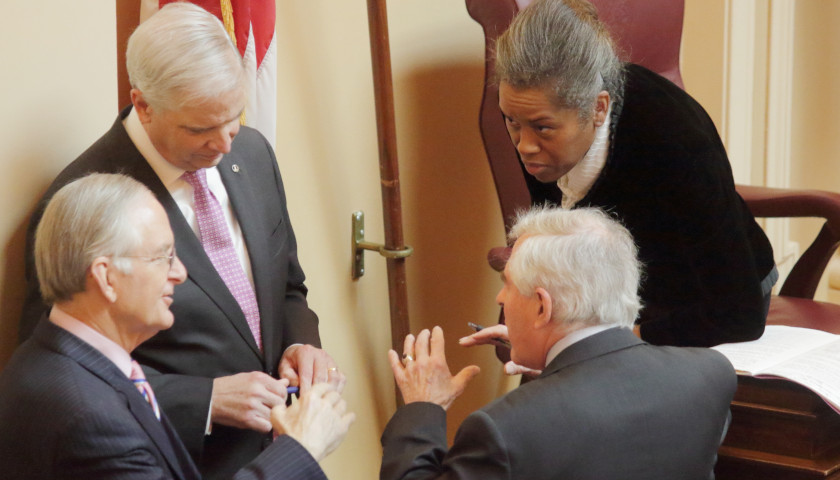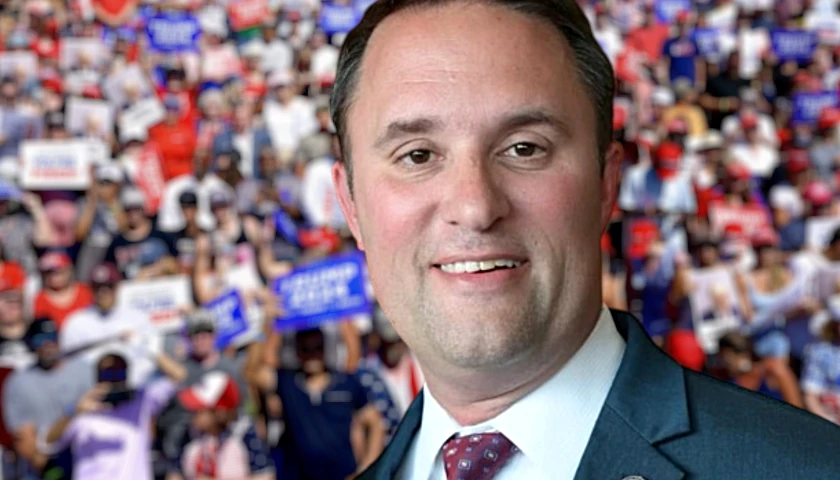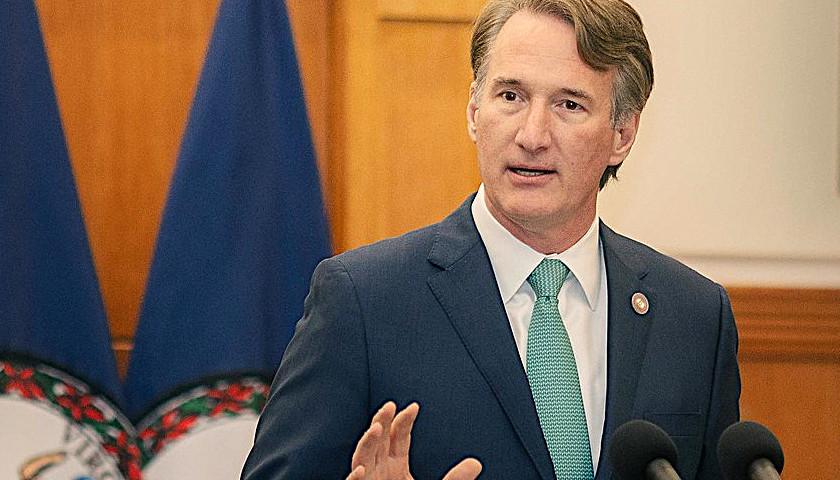RICHMOND, Virginia – Lieutenant Governor Winsome Earle-Sears cast her first tie-breaking vote in the Senate on Thursday. Senator Jeremy McPike (D-Prince William) voted with Republicans against SB 137, a bill that would allow defendants in most felony cases to appeal a judge’s discretionary sentence if the judge does not provide a “written explanation that adequately explains the sentence imposed[.]” When the 20-20 vote result was clear, Earle-Sears asked bill patron Senator John Edwards (D-Roanoke) and opponent Senator Mark Obenshain (R-Rockingham) to come to the dais, where they discussed the bill. Then, Earle-Sears voted against the bill.
“What I wanted to do was to give the patron an opportunity to talk to me about the bill in a way that I may not have, you know, heard before. And then I also wanted to hear the opposing view. I always want to give people the opportunity so that they can make their case. And as I was listening to all sides, what appeared to me was that the bill unfortunately is poorly written,” she told The Virginia Star.
Sears said the bill doesn’t define “adequately explain,” leaving it open to interpretation. She said that will lead to more people appealing, which will slow down the appeals process and result in people being incarcerated longer.
“In helping one it then takes away from another group of prisoners. So we can’t have that,” she said.
Sears cited her experience in prison ministry.
“This is the kind of stuff that is near and dear to my heart, you know – how do we help those who are in such positions?” she said.
She said she was familiar with the bill before the vote, but wasn’t expecting to break a tie.
“You can be very familiar with it, but then you start hearing the arguments on the floor, and they will bring to mind things you hadn’t thought of. That’s why you have arguments on the floor, because if not I would just say, ‘Okay – SB 137 – how do you vote? ‘ and be done. But the patron on the bill always knows that he should try at least one more time,” she said.
Later in the session, McPike asked to have the vote on SB 137 reconsidered, and the vote was then postponed.
“The patron asked for me to take a look at some language with him. So I afforded that courtesy to see if there’s a probability of anything to amend that might make it a bit better posture,” McPike told The Star.
Senator Emmett Hanger (R-Augusta) has served in the Senate since 1996. He liked the way Earle-Sears handled the decision-making process about the tie-breaking vote.
“She has said on numerous occasions, right after she was elected, that in that capacity, she was going to call balls and strikes as she saw them,” he said to The Star. “You would have expected previously, if someone in that position, observing that all Republicans voted one way and most of the Democrats, except for one, voted the other, that without even thinking about it, we just go ahead and call it for the Republican side.”
“She didn’t do that. She paused to study the bill herself. And actually, which is a little unusual, she called for people on both sides to come up and speak to it,” Hanger said.
With 21 Democrats and 19 Republicans, future ties are likely. On key policies Republicans are hoping to woo even just one moderate Democrat, creating a tie that Earle-Sears could break.
“I intend to employ that perspective to give the patron of the bill one last opportunity to make the case, and you know, my caucus knows that I’m not always going to vote with them. They know that. I didn’t when I was in the House, so they shouldn’t be surprised I’m always going to look at the fairness of the thing,” Earle-Sears said. “No knee-jerk reactions around here.”
Office of the Lieutenant Governor: More than a Tie-Breaker
Thursday’s vote was a rare chance for Earle-Sears to directly handle policy since many of the lieutenant governor’s tasks are ceremonial or procedural. That includes navigating the complex, closely scripted procedures of the Senate. Senate staff have been coaching Earle-Sears through the different types of votes required and dealing with procedural questions.
Hanger said, “She has actually gotten on board very quickly in terms of the regimen, in terms of the way we conduct business in the Senate, and has seemingly gone the extra mile in preparing herself.”
Senator Louise Lucas (D-Portsmouth) has served since 1992, and as president pro tempore, takes the dais when Earle-Sears is unable to be present during a Senate session. Lucas said that Earle-Sears is deliberate in the way she proceeds through the daily schedule.
“I think she’s doing a good job as a freshman lieutenant governor,” Lucas said. “I think over time she’s going to get even better, but right now she’s doing an admirable job.”
One of the daily ceremonial duties of the lieutenant governor is welcoming guests to the Senate. Earle-Sears frequently says the moment is the Senate’s favorite time, thanks the guests for coming to see their Senate in action, and, when greeting individual guests, thanks them for something specific to their work or role in Virginia.
“I like her style because she seems really genuine and she gives an added greeting which connects with people, and yet she doesn’t dwell on it a long time,” Hanger said.
“Our previous lieutenant governor, Justin Fairfax, always gave a very gracious welcome, but it was a little bit long,” he said.
The lieutenant governor also signs legislation passed by the General Assembly after the Speaker of the House signs it, a task that surprised Earle-Sears when she took office.
“I actually have to sign the bills before they get to the governor. I’m actually certifying the validity of the vote. And then the governor gets that opportunity, and without that, he doesn’t get them,” Earle-Sears said.
Earle-Sears summarized her view of the office: “To ensure that everybody is heard, everybody feels that they have had an opportunity to make their case. I don’t care what side of the aisle you’re on, you were duly elected, and you must be respected. You represent people who expect you to do your job, and I’m going to help you to do that. I’m not looking to catch anybody. I’m not looking to trick anybody, because, you know, we can disagree without being disagreeable. And that’s how we should be.”
“When all is said and done, I want people to say, ‘You know, we may not have agreed with Winsome, but she was always fair.”
– – –
Eric Burk is a reporter at The Virginia Star and The Star News Network. Email tips to [email protected].
Photo by Eric Burk.





